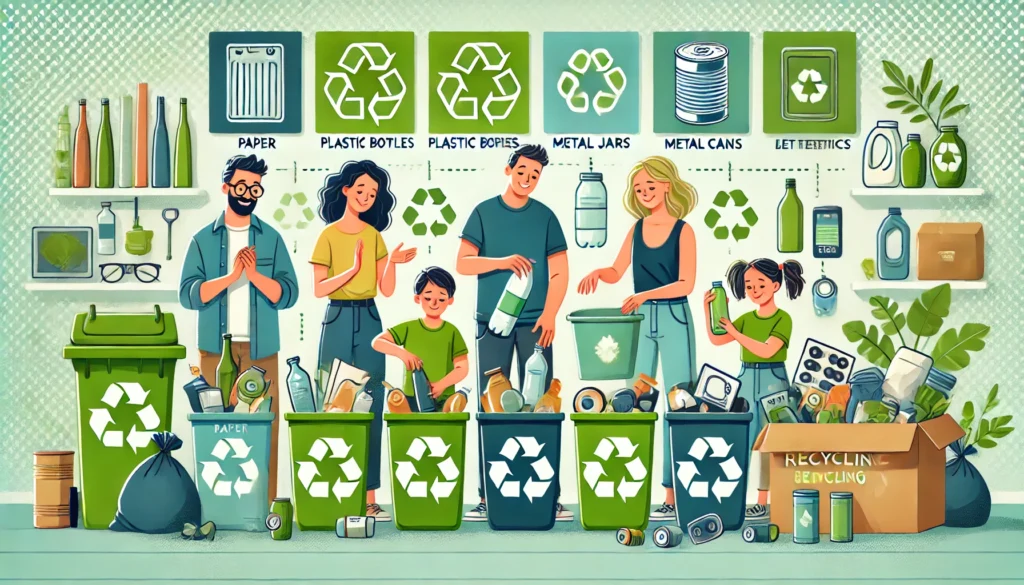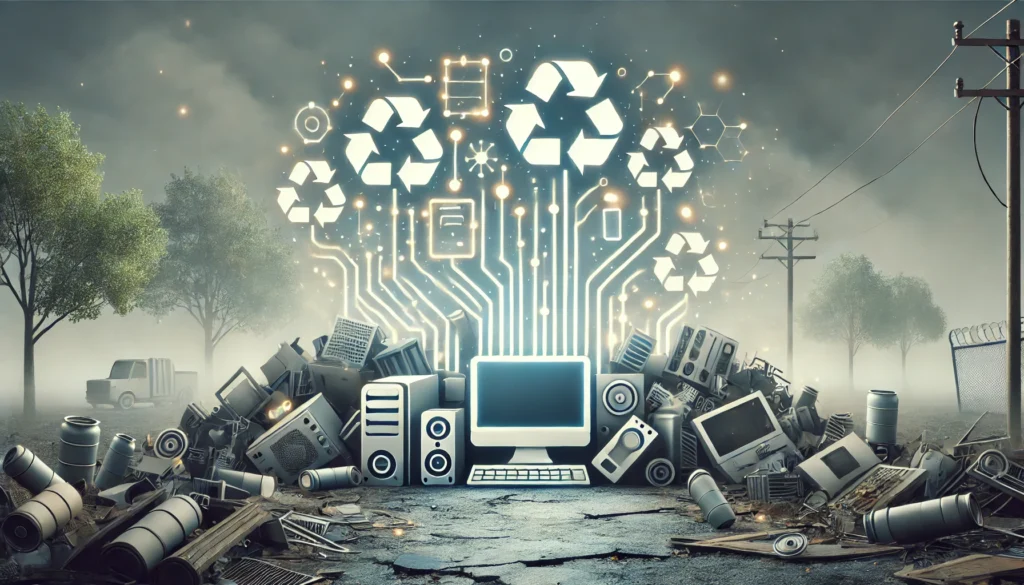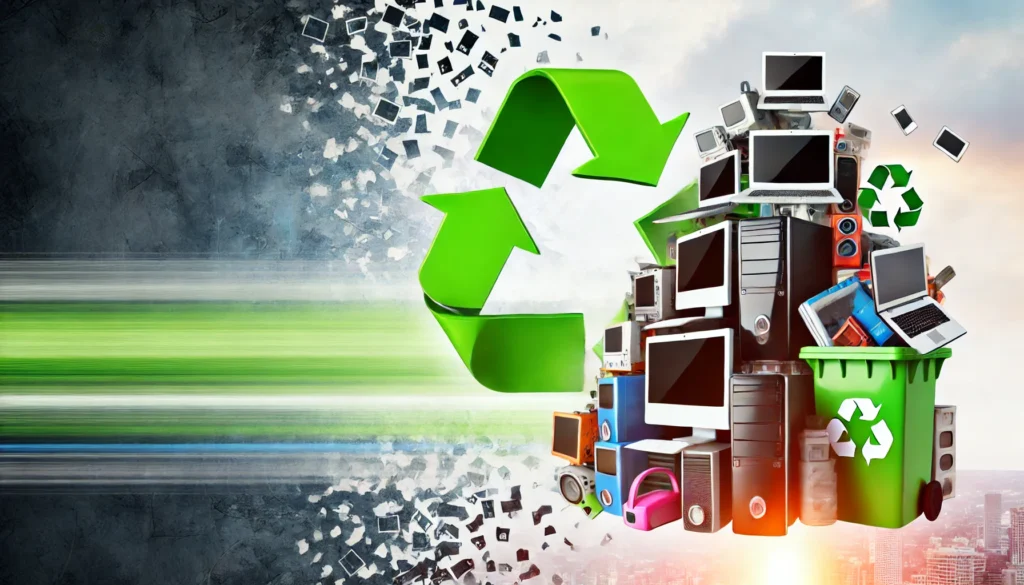Recycling is one of the easiest and most impactful ways to reduce waste and protect the environment. Many of the materials we use daily in our homes can be recycled instead of thrown away. By recycling, we not only conserve natural resources but also reduce pollution. In this blog post, we will explore the 7 common types of recyclable materials you can find in your home, along with practical examples of each, so you can contribute to a more sustainable future.
1. Paper and Cardboard
One of the most common recyclable materials in any household is paper. From newspapers to magazines, many items made of paper can be recycled. Additionally, cardboard boxes, such as those from online deliveries or cereal boxes, are also recyclable.
Examples:
- Newspapers
- Magazines
- Office paper
- Cardboard boxes (cereal boxes, shipping boxes)
How to Recycle:
Ensure that paper and cardboard items are dry and clean before recycling them. Wet or greasy paper (like used pizza boxes) may not be accepted for recycling.
2. Plastic
Plastic is widely used in packaging, containers, and household products. Many plastic items are recyclable, but it’s important to check for the recycling symbol (usually a number in a triangle) to know if your local recycling facility accepts the type of plastic you are discarding.
Examples:
- Plastic bottles (water, soda)
- Plastic containers (shampoo bottles, detergent containers)
- Plastic bags and wraps (though often these need to be recycled separately)
How to Recycle:
Clean and dry plastic containers before placing them in the recycling bin. Plastic bags can often be recycled at grocery stores that provide drop-off bins.
3. Glass
Glass is another highly recyclable material. Glass bottles and jars, such as those used for beverages, condiments, or jams, can be recycled. However, certain types of glass, like windowpanes and mirrors, are not accepted in standard recycling programs.
Examples:
- Glass bottles (wine, soda, juice)
- Glass jars (sauces, jams)
How to Recycle:
Rinse out glass bottles and jars before recycling. Remove any metal or plastic lids, as they may need to be recycled separately.
4. Metal
Many metal items found in the home are recyclable, especially aluminum and steel. Common items like soda cans, food cans, and metal containers can easily be recycled.
Examples:
- Aluminum cans (soda, beer)
- Steel cans (canned foods like beans or soups)
- Tin foil
How to Recycle:
Rinse metal cans before recycling them. Aluminum foil can be recycled if it’s clean and free of food residue.
5. E-Waste (Electronic Waste)
Old electronic items, commonly known as e-waste, include devices like phones, laptops, and small appliances. Many electronic items contain valuable materials like metals that can be recycled, but they must be handled properly to avoid harmful chemicals leaking into the environment.
Examples:
- Old mobile phones
- Laptops
- Chargers, cables, and batteries
How to Recycle:
Many local recycling centers or electronics stores have special drop-off points for e-waste. Don’t throw electronics in the regular trash, as they contain hazardous materials.
6. Batteries
Batteries can be found in many everyday household items. It is crucial to recycle batteries properly because they contain toxic chemicals like lead and cadmium, which can harm the environment if not handled correctly.
Examples:
- Alkaline batteries (AA, AAA)
- Rechargeable batteries (used in electronics and cordless tools)
- Button cell batteries (used in watches or hearing aids)
How to Recycle:
Most electronic stores or designated recycling centers accept batteries for recycling. Avoid throwing them in the trash due to their hazardous components.
7. Textiles
Clothing, bed linens, and other fabric materials fall under textiles, which can often be recycled or reused. Many clothing stores and charities accept old textiles for recycling or repurposing.
Examples:
- Old clothes (shirts, pants)
- Bed sheets and towels
- Fabric scraps from sewing
How to Recycle:
If the textiles are still in good condition, consider donating them. For worn-out fabrics, check if local recycling centers or textile-specific recycling programs will accept them.
Recycling is an important habit that everyone can adopt to reduce the amount of waste we produce and protect the environment. By understanding the different types of recyclable materials commonly found in your home, such as paper, plastic, glass, metal, e-waste, batteries, and textiles, you can take simple steps to make a positive impact. Start by sorting these materials properly, cleaning them, and recycling them responsibly.
Read this in Marathi at तुमच्या घरात आढळणाऱ्या 7 सामान्य पुनर्वापरक्षम वस्तू आणि त्यांचे प्रभावीपणे पुनर्वापर कसे करावे?
Discover more from Green Ecosystem - Renewable Energy, Agriculture, and Environmental Sustainability
Subscribe to get the latest posts sent to your email.


